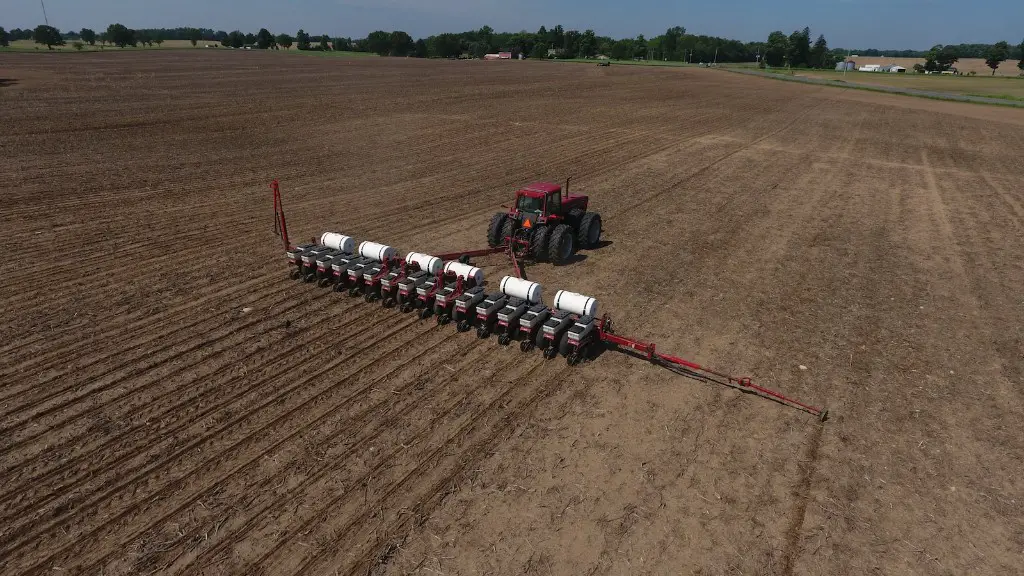Urban agriculture is not a new concept, but it is one that is becoming increasingly popular in cities around the world. There are many reasons why urban agriculture is gaining popularity, including the fact that it can help to improve the local environment, provide fresh food for city residents, and create jobs and economic opportunities.
In addition to the environmental and economic benefits, urban agriculture can also have a positive impact on the social fabric of a city. Urban farms can provide a sense of community and belonging for city residents, and can help to connect people with the natural world.
Urban agriculture is a versatile and resilient way to produce food, and it is one that is likely to become increasingly important in the years to come.
There are many reasons to support urban agriculture. One reason is that it can help to increase food security in cities. Urban agriculture can also help to create jobs and boost the local economy. Additionally, urban agriculture can help to improve the quality of the environment in cities.
Why did farmers move from rural to urban areas?
There are several reasons why rural residents migrate to urban areas when their financial ability reaches a certain level. The better living and production environment in urban areas is one of the main attractions. Urban areas also tend to have more job opportunities and better access to education and healthcare. Additionally, many rural residents feel a sense of social and economic isolation in their communities, and migrating to an urban area can help to mitigate that.
There are many benefits to urban farming, including increased productivity and warmer conditions for crops. However, not all urban farming practices are for commercial profit. Some farmers may choose to grow crops for personal use or for the benefit of the community.
Why is urban agriculture controversial
Contaminated food is a serious health problem in urban areas where farmlands are highly susceptible to containing toxic substances. These substances, such as heavy metals, can cause serious health problems including lead poisoning, zinc poisoning, copper poisoning, tin poisoning, mercury poisoning, and arsenic poisoning. The main sources of these metals in urban soils are emissions from factories, automobiles, and sewage. To protect your health, it is important to avoid eating contaminated food and to wash your hands thoroughly after handling any food that may be contaminated.
Urban farming is a more sustainable form of agriculture that is better for the environment and the local community. Traditional farming is more harmful to the environment and is less efficient in terms of water and food resources.
Why did urban farming start?
Urban gardening became popular in the early 20th century as a way to rejuvenate city areas and attract more residents. It also helped with inflation and environmental concerns of the time. Communities took the opportunity to start fresh, cleaning up the ashes and planting gardens that could produce fresh foods.
The post-World War I era was a time of great transition for farmers. With the war over and the dramatic increase in the use of tractors, farms were able to produce more than ever before. However, this led to overproduction and a decrease in prices, forcing many farmers to leave the rural life for a job in the city. While this was a difficult time for farmers, it ultimately led to a more efficient and productive agricultural industry.
What are 3 benefits of urban agriculture?
Urban agriculture can have a number of benefits for the surrounding community. It can help reduce transportation costs, by providing fresh produce locally. It can also help reduce runoff associated with heavy rainfall, by absorbing some of the water. Additionally, urban farming can lead to better air quality, by producing oxygen and filtering out pollutants.
There are many benefits to urban farming, but these are just five of the most impactful ones. By providing locally grown food, you can help support the growing trend of eating fresh and nutritious meals. Additionally, you can help create jobs and boost the local economy.
Not to mention, urban farming can help promote healthy communities by providing access to fresh fruits and vegetables. And finally, it can help “green” your city by providing more green space and beautifying your surroundings.
What are the pros and cons of urban agriculture
Urban gardening can provide fresh produce that supports a healthy lifestyle as well as other items. Additionally, it promotes income production and small business expansion. Making fresh food more affordable is urban agriculture’s key benefit. Contamination is one of concerning Space-related problems. Maintenance costs are also a concern with urban gardening.
Excessive use of agricultural inputs can pollute soil in urban areas. As a result, chemicals become residues in the soil, making it less fertile or toxic in the long term. This residue can leach or run off into the city’s main water sources.
What is the problem with urban farming?
Urban farming is a difficult endeavor because of the limited resources and pollution in the cities. The main challenges facing urban farmers are resource scarcity, including water, land, labour, accessibility, and environmental contamination.
While there are some possible drawbacks to urban farming, it can also be a great way to utilize unused space and resources in cities. With proper planning and management, urban farms can help to reduce pollution and increase the sustainability of cities.
Is urban farming effective
Urban agriculture has many benefits that can help make cities more resilient. By diversifying food sources and income opportunities, urban agriculture enhances vegetation cover and water infiltration. It also contributes to the sustainable management of water and natural resources.
This is an important finding, as it indicates that urban farming can be a viable option for feeding large cities. The study also found that urban farmers are more likely to use organic methods, and are more efficient in their use of small spaces. This is important because it means that urban farming can be a more sustainable option than commercial farming.
How does urban farming affect the economy?
Urban gardens are a great way to improve the local economy. They create jobs and produce fresh, healthy food that can be sold locally. They also help to reduce pollution and improve the quality of life in cities.
Many people are interested in reducing their carbon footprint, and one way to do this is through urban farming. Urban farms can help to reduce the need to transport food, as well as the use of more environmentally friendly farming methods. This can help to reduce the amount of pollution and greenhouse gases that are produced each year.
Warp Up
There are many reasons to support urban agriculture, including the fact that it can help to increase the availability of fresh, healthy food in cities, create jobs and business opportunities, and improve the environment. Urban agriculture can also help to build community cohesion and pride, and provide people with a sense of connection to the land and to their food.
Urban agriculture provides many benefits for cities and their residents. It can help to increase the availability of fresh, healthy food, create jobs and business opportunities, and improve the environment. With so many benefits, it’s no wonder that more and more cities are encouraging urban agriculture.





